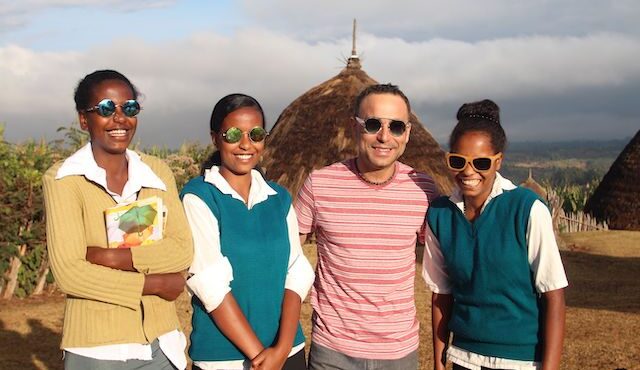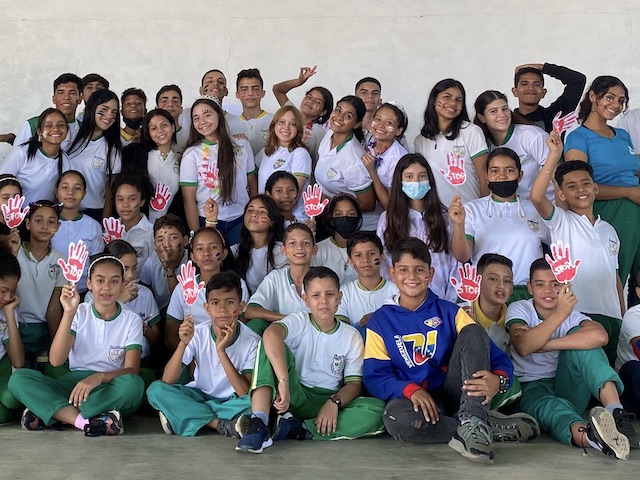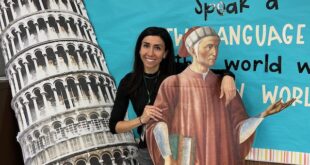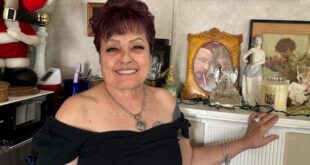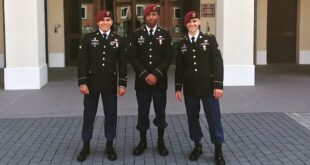A devout Catholic with a long history of involvement in faith-based organizations, Gabriele Delmonaco has helped Boys’ and Girls’ Towns of Italy rebrand and export their initiative around the world.
Gabriele Delmonaco says he fell in love with the nonprofit A Chance In Life from the moment he learned about it.
The 52-year-old has served for nine years as president and CEO of the New York City-based nonprofit, which began in 1945 as an effort to help street children in Rome, Italy.
Delmonaco tells Fra Noi about the journey that led him there and the work of A Chance In Life, which provides at-risk children in 12 countries with education, nutrition, healthcare and leadership training.
Elena Ferrarin: Tell us about your upbringing.
Gabriele Delmonaco: I was born in Taranto, Puglia. My family was poor; we were four kids and my father was the only one working. He was a mechanic. When it came time for me to go to university, we couldn’t afford it, so I applied for a scholarship from a foundation, and that allowed me — and my siblings eventually — to go to Rome and study there.
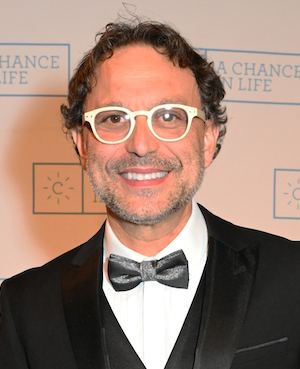 EF: How did you end up working as associate director of accounting and finance for the Vatican?
EF: How did you end up working as associate director of accounting and finance for the Vatican?
GD: While I was studying economics and business, Cardinal Achille Silvestrini, the president of the foundation that provided me with the scholarship, offered me the opportunity to work temporarily at the Vatican, because one of the accountants was on medical leave. That became a permanent job. I was brought up Catholic, so for me it was wonderful to work in Vatican City. We would meet Pope John Paul II once a year and it was an amazing experience for me.
EF: You moved to the United States in 2001. Why did you make that choice?
GD: I left Italy to pursue my dream of working for a nonprofit. I got a job at Catholic Near East Welfare Association in New York City, where I moved right after Sept. 11, 2001. I remember finding the city on its knees when I came, with all the bulletin posts of missing people. It was shocking. I spent 12 years at CNEWA. I started in fundraising and eventually became CEO. CNEWA is a papal agency that provides pastoral and humanitarian support in countries in the East (intended as the Middle East, Northeast Africa, India and Eastern Europe). I was particularly into the humanitarian aspect of that job. Working for CNEWA allowed me to travel, and it was amazing to see what the generosity of U.S. donors was able to achieve.
EF: What led you to A Chance In Life?
GD: After CNEWA, I became vice president of advancement and communication for the Jesuits of the New York and New England Provinces. I was not looking for a new job, but I was contacted by a headhunter for Boys’ and Girls’ Towns of Italy, which was the previous name of A Chance In Life. I said, “No, thank you, I am not interested,” but she insisted. The moment I started learning about the organization, I fell in love. The board wanted to export this Italian initiative into the world. I was hired in February 2015, and in September 2015 we opened the first Boys’ and Girls’ Town of Ethiopia. After we started to expand around the world, I proposed to the board to change the name of the organization to A Chance In Life. It’s more international, and it’s something that our founder used to say: we need to provide a chance in life to children. (The organization now also has a presence in Mexico, Guatemala, Venezuela, Colombia, Peru, Bolivia, Uganda, India and Palestine, according to its website.)
EF: Tell us more about Boys’ and Girls’ Towns of Italy.
GD: The founder was an Irish priest, Monsignor John Patrick Carroll-Abbing, who was working in the Vatican. At the end of World War II, he saw the plight of many children who were wandering the streets in Rome. He went to Pope Pius XII and said, “We have to do something about the children.” The pope told him he had his blessing, so with no money in his pocket, our founder came to the U.S. and started asking for donations for the children in Italy. He went back and rented a place for the children to stay near the train station in Rome, but then he noticed most of the children would run away. One of the children explained to him that they were accustomed to living in the streets and didn’t want adults to tell them what to do. So, the Monsignor established the first “Repubblica dei Ragazzi” near Rome. Now, we have three programs in Italy. The uniqueness of this pedagogical approach is the idea of self-government. The children run the town and take responsibility for their lives in the community. There is an elected mayor, a parliament, judges, and a currency called “i meriti.” There are psychologists and psychiatrists that monitor the children, who go to public schools. Boys’ Town of Italy was created as a 501(c)(3) organization to raise money. Later, the name was changed to Boys’ and Girls’ Towns of Italy.
EF: What work do you do in the United States?
GD: During the COVID-19 pandemic, we opened a youth center on the North Shore of Staten Island, where the poverty rate is the highest in the city. We started via Zoom with children from local schools, and as soon we were able to open our doors, we had in-person programs. Now we have a very successful leadership program for underprivileged children, and we also have a food pantry called Free Market, where people pick the items they need.
EF: Given all your travels, do you have a favorite country?
GD: Ethiopia. I’ve traveled there about 25 times. There is so much connection to Italy, for better or worse, because Italy occupied Ethiopia for five years (from 1936 to 1941) and you see so much Italian influence. Ethiopians are so welcoming. I also like very much the Middle East in general — Jordan, Syria, Lebanon, Palestine, Israel. In Bethlehem, Palestine, we are supporting the Ephpheta Paul VI Institute, a special school for deaf children that has been run for 50 years by Italian nuns. It’s another beautiful example if the Italian spirit of initiative, collaboration and philanthropy.
EF: What’s next for A Chance In Life?
GD: We have 13 staff members and a budget of about $3 million. The only limitation to expansion is funds. If we can find generous donors who can help us, we are ready. We have received so many requests from countries in Africa and Latin America. Also, the programs we have in Italy have been successful since 1945, but we need to remodel some of the buildings. Another idea is to also expand here in the United States.
EF: You’ve spent your career in religious-affiliated organizations. It seems like your faith is central to your life.
GD: I was born and raised Catholic, so the Catholic values, and in general the Italian values of family, are definitely very strong in me. But I think in general, the Christian values of caring for others, of feeding those who are hungry, those who are needy, and providing clothes and education, are universal values.
For more, click here.
The above appears in the April 2024 issue of the print version of Fra Noi. Our gorgeous, monthly magazine contains a veritable feast of news and views, profiles and features, entertainment and culture. To subscribe, click here.
 Fra Noi Embrace Your Inner Italian
Fra Noi Embrace Your Inner Italian


